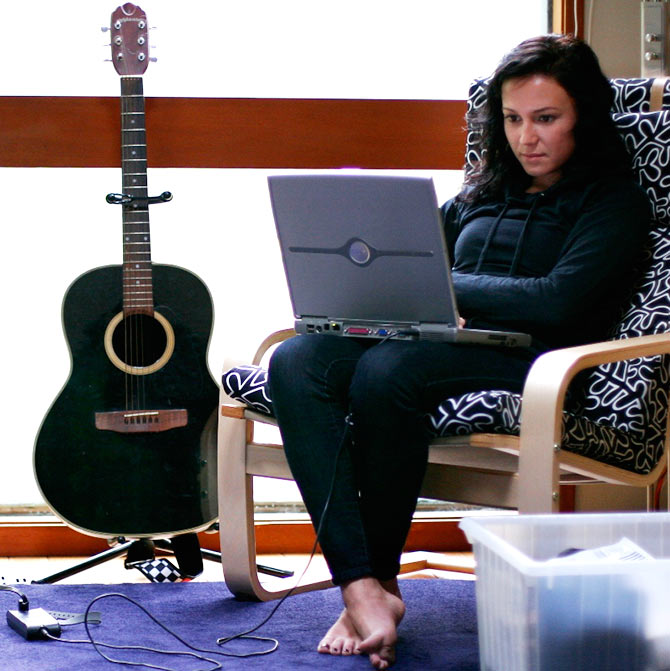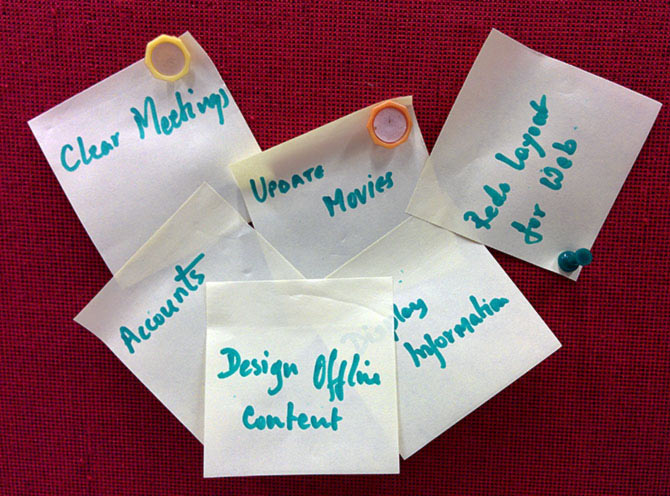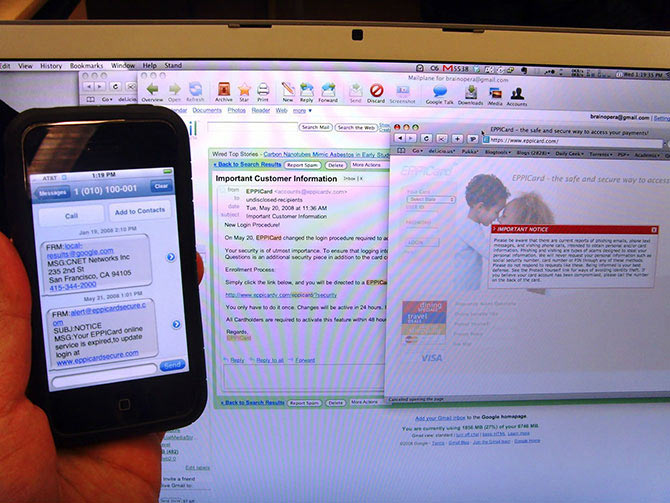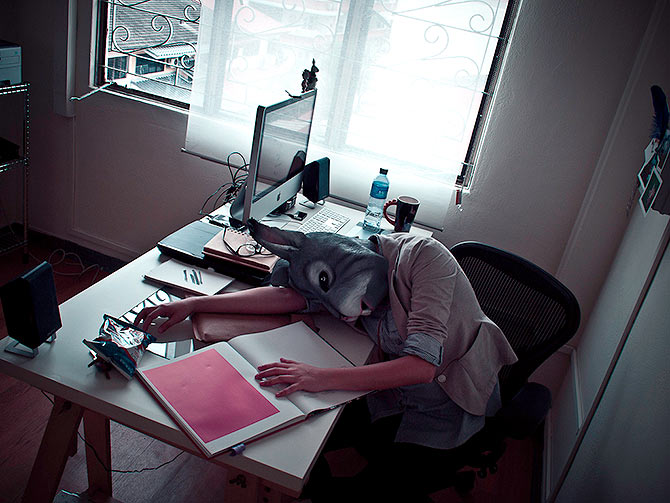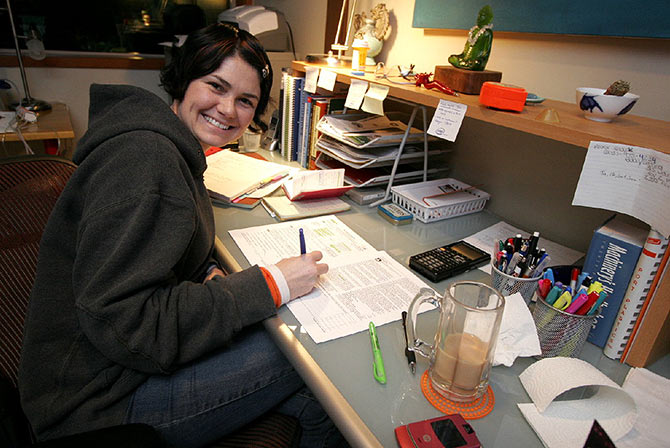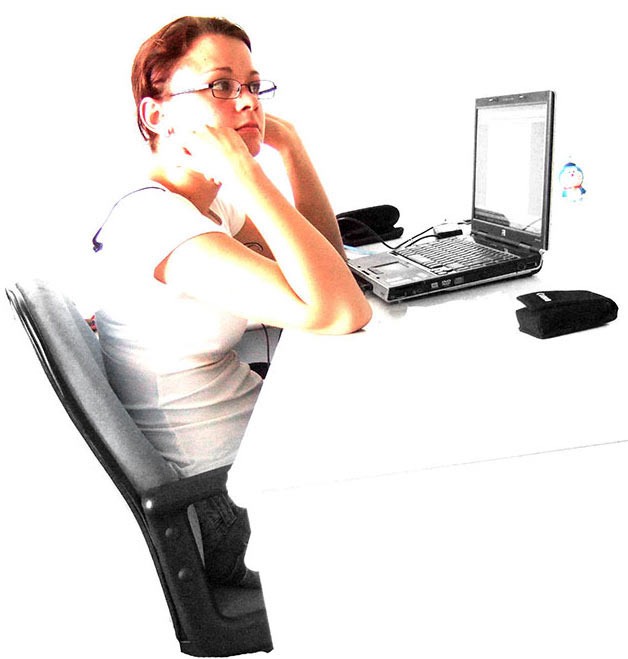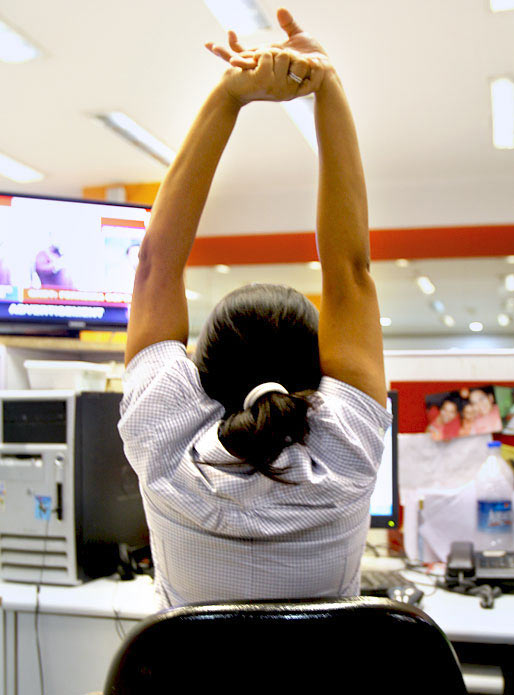 | « Back to article | Print this article |
10 ways to stay disciplined while working from home
Yahoo! CEO Marissa Mayer may not be in favour of people working from their homes.
But working from home isn't necessarily such a bad idea. Here are some effective tips to give in your best despite being away from the office.
It is, admittedly, easy to get distracted while working from home.
The TV, the kids, the chores... all of it can take you away from what you're meant to be doing.
So it wasn't surprising when Yahoo! CEO Marissa Mayer issued a diktat some years ago asking some 12,000 employees to work out of the company's various offices rather than from their homes.
The decision sparked a worldwide debate that has since been raging with both sides making compelling arguments.
Fact is, working from home has its advantages.
For one it saves the long commute that so often tends to drain you out. So you're fresh as a daisy when you settle yourself before the computer screen.
So how do you make the most of this head start?
Please click NEXT to continue reading...
1. Create an office space
Dedicating space for work ensures you draw a boundary (literally) between the personal and the professional.
Mitali Parekh, a freelance journalist, has a room with just a desk, a chair and a wi-fi router.
"There is nothing else in it," she says, "No books, no TV and definitely no bed. So there is no temptation to nap."
Don't get any of your personal stuff into your office -- your bills or your vegetables or that telephone line.
Much of this helps get you into a 'zone' and can keep you away from being sucked into the chores that you might just suddenly remember, for instance, after seeing that cobweb or an improperly stacked pile of books and DVDs.
Also, inform your family of your work hours and ensure they respect your workspace.
2. Dress for work
It is said that when he steps into his home office, veteran journalist Gay Talese dresses in a three-piece suit.
When you're working from home, you will be tempted to work in your pyjamas, not shave or have a shower.
Don't do it.
Dress up as you would dress up to go to work.
Just like a dedicated office space, this too will help you get into the work zone.
Also, should a client or a colleague visit you, you won't have to scurry to the wardrobe to look presentable.
3. Prioritise your tasks
Lists always help! (You happen to be reading one :-P)
As we mentioned earlier, prioritising your tasks always increases your efficiency.
Having a list when you start puts you in charge of the day.
You know exactly what you need to achieve EOD and you will (most likely) work towards completing it.
Parekh takes this a step further. She makes a 'micro-list' -- containing all the tasks like writing emails or making telephone calls etc, which may seem minor and boringly administrative, but are crucial nonetheless.
The separate list ensures she doesn't miss out on the smaller (but important) things she needs to achieve through the day.
4. Club tasks into groups
The moment you have your list (and micro-list) ready, club all similar-tasks into groups -- writing out emails and making phone calls for instance, putting together those presentations, drawing out Excel sheets etc -- and tackle the tasks group-wise.
Remember, keep the labour-intensive tasks for the second half because you tend to slow down-post lunch.
Parekh gets around to writing her emails at night.
That way she ensures hers is among the first emails to be read in the morning. The follow-up phone calls are made closer to noon when she knows her email would have been (hopefully) read.
Tackle the thought-intensive tasks in the first half.
In Parekh's case, it is at about 5.30 am when she begins writing her piece and fires it off just around the time her editors are checking into their offices.
Similarly, club all your outdoor tasks together. So if you want to, let's say, run an errand, do it on your way back from a meeting you are to attend.
It'll save you money and not to mention time.
5. Make deadlines and stick to them
Not meeting deadlines remains one of the most common complaints that bosses use against people working from home.
So when you make the list, add an estimated time against each point.
Reward yourself after achieving your goals. Similarly, punish yourself if you don't.
Parekh does not eat a meal before she has completed a certain number of tasks on her list.
Similarly, when she steps out of the house occasionally, to a coffee shop for instance to work, she ensures she is done with her assignment in a certain number of hours "because otherwise, I am compelled to spend another 500 rupees on a second cup of coffee."
6. Take on more work
The more work you take on, chances are you will be more efficient.
Parekh feels that it keeps her on a leash.
She doesn't miss her deadlines; her editors are happy; it helps her get more work.
Working from home means no water cooler gossip, no strolling over to a colleague's desk, no chance of going googly-eyed over your crush.
Make the most of all that time you save and deliver more.
So should the bosses question you, you will have a list of achievements to show how you've been efficient.
7. Exercise
This possibly has been a permanent fixture in all our advice columns.
And there is no telling just how important it is.
If you're working from home, chances are you have shaved off anywhere between two to four hours of commute.
Make the most of this time.
Instead of waking up late, start your day as you would have when you had to go to work and dedicate an hour for the gym or yoga or really any kind of physical activity.
Exercising releases endorphins or 'happy hormones' that combat stress and lift up your mood... just what you need to begin your day with.
But you knew that already, didn't you?
ALSO READ 10 really cheap ways to stay fit!
8. Don't let your office take you for granted
Just as you shouldn't let your household chores get in the way of your work, don't also let your colleagues take advantage of you.
It might start with a call at 6 pm to take over a project or rescheduling a deadline to an earlier time because 'you are at home and can put in an extra hour'.
Ask yourself if you'd have received that phone call or that email request if you were working from the office?
Is whatever has been asked of you so crucial that it cannot wait till the next working day?
If the answer to the first question is a 'No' and the second is a 'Yes', put your foot down.
You may not be getting paid lesser for working from home but you certainly aren't getting paid extra.
9. Stay off Facebook!
Yet again, something we cannot tell you enough off.
Facebook (or any other social media website, really) can devour your hours without you realising it.
Chances are your office has a firewall keeping you away from your friends' vacation photographs.
At home, you may not have that firewall, which makes it all the more important to discipline yourself to stay away from it.
ALSO READ 5 ways to overcome your Facebook addiction
10. Review your performance
At the end of each day, ask yourself if you would have achieved more if you were in the office.
If the answer to that question is 'Yes' for more than a few days consistently, it is a good sign that you need to buckle up and be hard on yourself.
